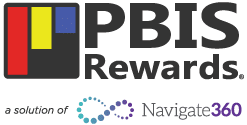When a school implements a PBIS framework, they are beginning a long-term commitment to improved climate and culture. PBIS gives both staff and students a powerful, effective way to build relationships and create a better learning atmosphere. Because PBIS is a radical departure from traditional discipline methods, building a PBIS team can help your initiative flourish. But for PBIS to be successful, you’ll need commitment, fidelity, and buy-in from all quarters. The individuals you recruit for your PBIS team can help to make this a reality.
Who Should Be on Your PBIS Team?
An effective PBIS initiative needs a team of individuals who represent the various groups in your building. Depending on your school’s makeup, this team should include:
- Administration (principal, vice-principal, dean of students)
- Teacher representative (one from each grade if possible)
- Department representative (if you are a high school)
- Behavioral expert (school counselor, therapist)
- Parent representative (possibly more than one)
- Student representative (particularly for high school)
The individuals you recruit for your PBIS team will help to drive the initiative forward and make adjustments along the way. It’s crucial to have buy-in from everyone on your team.
Establishing Team Roles and Responsibilities
For your team to be effective, there must be structure built into your meetings. That means that there are some roles that will need to be filled. Each member has a duty to keep meetings on track. Otherwise, meetings have the potential to drag on with no progress being made.
Team efficiency can be possible when you consider these roles:
- Team leader/facilitator
Establishes meeting dates, notifies the team of these dates, seeks input for and sets agenda, serves as the point of contact for all team members in between meetings
- Administrator
Uses official role to approve the budget, staffing, and scheduling decisions, provides feedback and encouragement
- Recorder
Records minutes, tracks agenda during the meeting, provides recap of meeting
- Timekeeper
Keeps meetings on track, uses predetermined blocks of time to allow for discussion on each section of the agenda
- Data specialist
Tracks data based on team goals, provides reports and/or graphs to help the team assess the effectiveness of the initiative
- Behavioral specialist/coach
Provides expertise regarding PBIS on both a schoolwide and individual level, helps to guide the team in making adjustments to the initiative
Depending on the makeup of your team, some of these roles can be combined. Don’t conflate team roles with the positions of team members in the larger school community, however. You may find that certain individuals have talents beyond day-to-day roles.
The Purpose of Your PBIS Team
Your PBIS team helps to drive your initiative forward, both schoolwide and at the classroom level. Their efforts are crucial to the success of PBIS in your school. The most basic duties of your team include:
- Establishing a schoolwide matrix
- Reviewing data
- Adjusting expectations
- Promoting PBIS to students and staff
Perhaps the most important part of creating a PBIS team in your school is assuring everyone is on the same page. It’s critical for team members to understand the purpose of the team. After all, you’re asking staff members to give up some of their free time to serve in this capacity, and they must be supportive of the idea.
The Importance of Data
Your PBIS initiative will generate a lot of data. Tracking and assessing this data is integral to the decision-making process when it comes to fine-tuning your efforts.
Your PBIS team must look at the data and report their findings to the school and the community. What parts of the initiative are working? Which parts are not? What benchmarks are you using? How are the numbers changing? What are the metrics for moving students into different tiers? Does your staff understand these metrics? Is there a process in place to make such decisions? Your PBIS team should clearly align their mission with the data targets. The transparency of this information makes your team valuable and mission-critical with regard to PBIS in your school.
Your PBIS team should work closely with your leadership team. In fact, there may be some overlap in membership between these two teams. However, the role of your PBIS team is distinct and separate from that of your leadership team. While your PBIS team should develop the plan for inspecting PBIS data, it should be the responsibility of your leadership team to track fidelity in your school.
Fidelity in PBIS isn’t always easy to spot. Your leadership team can make observations about staff fidelity to your PBIS initiative through frequent walk-throughs of your school. How often and how consistently are teachers rewarding students? These walk-throughs can provide opportunities for informal conversations with teachers who might need guidance in PBIS. Such conversations can help staff members create effective, lasting changes in their classroom.
PBIS Rewards Can Help Your PBIS Team Be More Effective
Ideally, fidelity should be at or above 80% among your staff. However, measuring fidelity manually can be inexact at best. The data generated by your PBIS initiative can be powerful if it is accurate. Your PBIS team can benefit from an automated schoolwide PBIS management solution like PBIS Rewards. The reports generated through PBIS Rewards can give both your PBIS and leadership teams accurate information about PBIS in your school.
A successful PBIS initiative relies on accurate data, a committed PBIS team, and staff and student buy-in. PBIS Rewards can help your PBIS team by providing the data necessary for decision-making.
Give your PBIS team the tools they need to be effective!
Learn more at https://www.pbisrewards.com/get-started/


